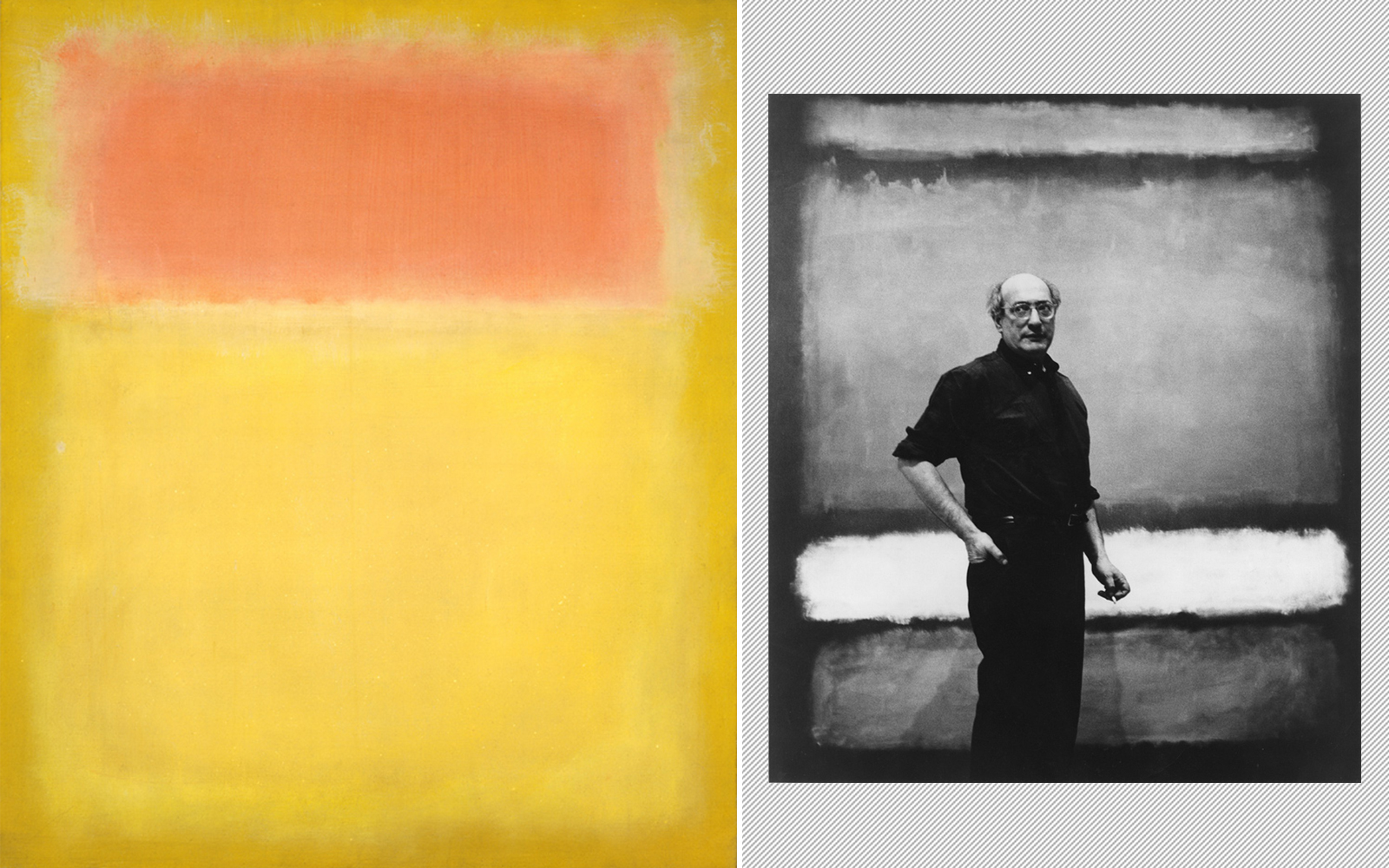 Left: "Untitled", 1951. Right: "Mark Rothko with No. 7", 1960.
Left: "Untitled", 1951. Right: "Mark Rothko with No. 7", 1960.
The artistry of the late Mark Rothko, considered one of the pillars of the abstract expressionist movement, has, of late, been a bit overlooked when it comes to prominent museum exhibitions in this country. But that’s about to change as the Museum of Fine Arts, Houston is mounting ‘Mark Rothko: A Retrospective’ – the first comprehensive stateside show dedicated to his oeuvre since 1998.
What makes this show so distinctive is the unrivalled offerings on view. The exhibition draws on the rich holdings of the National Gallery of Art in Washington, these pieces comprising what have long been deemed ‘Rothko’s Rothkos’ – works the artist held at the time of his tragic death. On view in Houston are more than 60 examples spanning the artist’s career, which began in the late 1920s and lasted until his death in 1970.
Both the rise of Fascism and the outbreak of the Second World Way made an enormous impact on Rothko, a Russian immigrant. While initially focusing on figurative painting, he turned away from the style as he sought to develop an entirely new visual language. Of his 1951 Untitled, saturated in radiant yellows, Alison de Lima Greene, the Museum of Fine Arts, Houston's curator of contemporary art and special projects says: ‘By this time, he cracked the code. He had found his signature style, which was not so much about the motif, but about how to layer paint to achieve an unprecedented luminosity.’
In taking in Rothko’s paintings – with a palette running from the sublime to the disquieting – one quickly realises his formidable artistry. ‘He was the last of the philosopher painters, believing that abstract painting could reveal absolute truths that are both profound and eternal. As Rothko stated in Life magazine in 1959, "A painting is not a picture of an experience... It is an experience."’
‘This is,’ she adds, ‘perhaps his greatest legacy.’
This article originally appeared on Wallpaper*.
More good reads from Wallpaper*:
• In infinity: Yayoi Kusama’s dots take over the Louisiana Museum of Modern Art
• World of dissent: Ai Weiwei's Royal Academy retrospective
• 400 Rabbits, London, UK